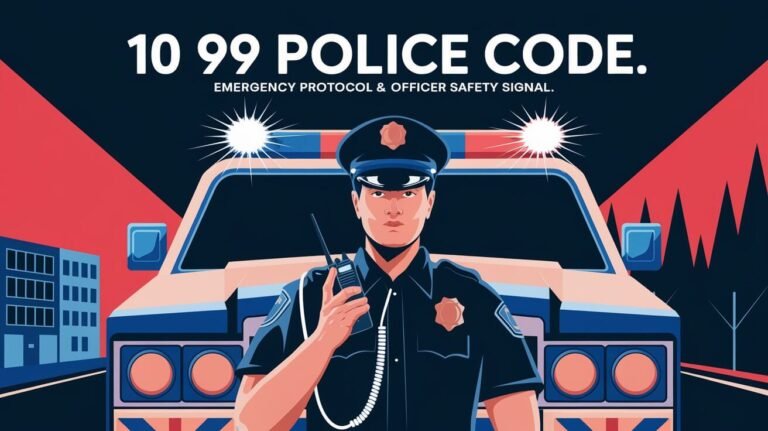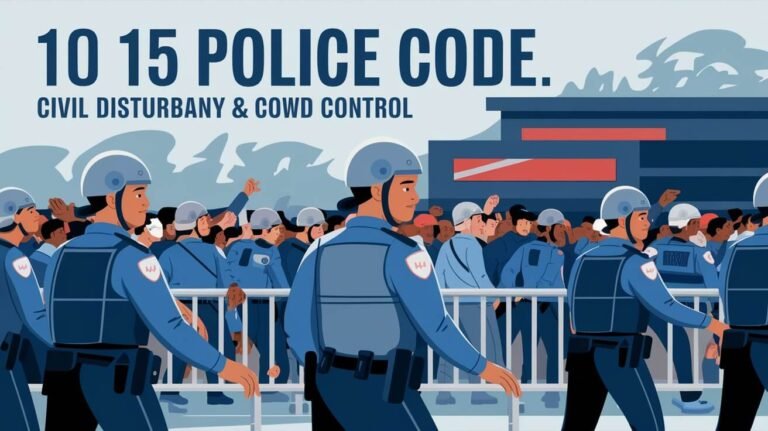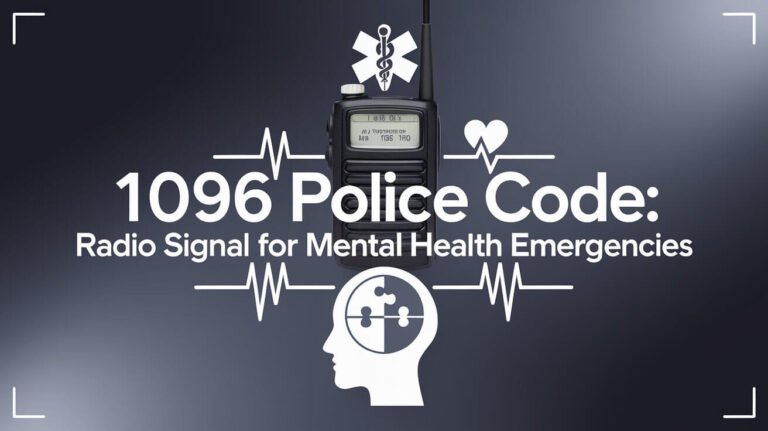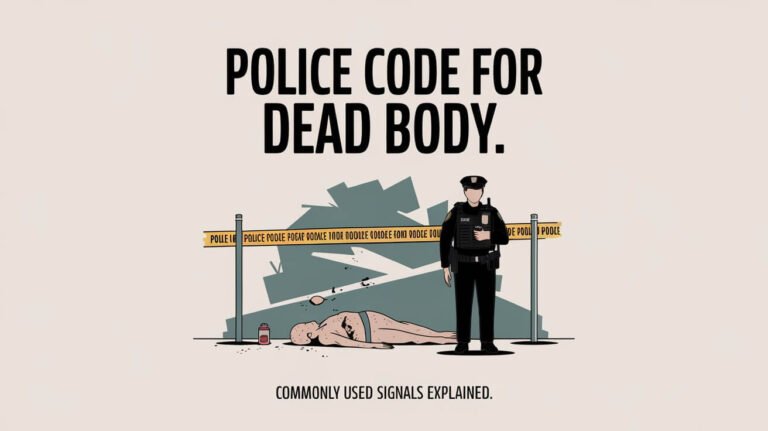What Rights Do You Have During A 5150 Hold? Legal Protections
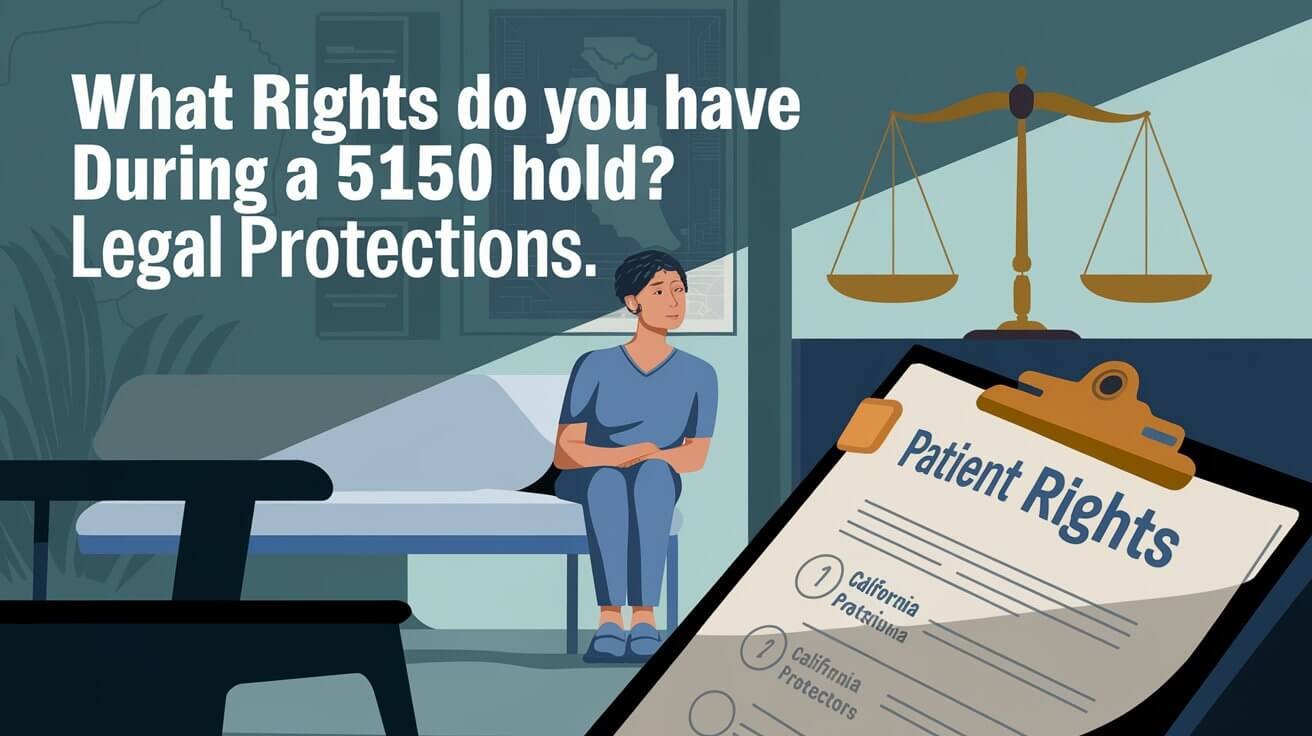
In California, a 5150 hold is a key part of the state’s laws. It lets authorities take someone to a hospital for a mental health check if they seem to be in danger. This is done to help them during a mental health emergency.
People under a 5150 hold have their rights looked after. They can get a lawyer and have a judge review their case soon. This makes sure their rights are respected while they get the help they need.
Legal Definition and Purpose of 5150 Hold
In the United States, a “5150 hold” is when someone is held for a short time because they might harm themselves or others. This happens when they are in a mental health crisis. It’s based on the Lanterman-Petris-Short (LPS) Act in California, found in the California Welfare and Institutions Code (WIC) Section 5150.
California Welfare and Institutions Code Overview
The LPS Act started in 1967 to help people with mental health issues. It lets a mental health expert or a police officer start a 5150 hold. This is if they think someone might harm themselves or others because of a mental health problem.
Criteria for Involuntary Detention
- Danger to self: The person is at risk of harming themselves.
- Danger to others: The person might harm someone else.
- Gravely disabled: The person can’t take care of themselves because of their mental health.
Duration of Initial Hold Period
When a 5150 hold starts, the person is kept for 72 hours. They get a full check-up to see what they need. If the place they’re at thinks they don’t need more help, they can be released early.
Mental Health Professionals Authorized to Initiate a Hold
In California, a 5150 hold lets authorities keep someone in a psychiatric facility for up to 72 hours. This is if they are a danger to themselves, others, or are severely disabled by a mental health issue. This rule comes from Section 5150 of the California Welfare and Institutions Code.
Only certain professionals can start a 5150 hold. These include psychiatrists, clinical psychologists, psychiatric nurses, and some law enforcement officers. They must check if the person is a danger to themselves, others, or is severely disabled before taking action.
These mental health experts need special training to handle the psychiatric evaluation and mental health assessment needed for a 5150 hold requirements. DLH Enterprises, LLC, in Los Angeles, offers training. It covers the legal, ethical, and clinical sides of mental health care, including the 5150 hold, to improve patient care.
| Professionals Authorized to Initiate a 5150 Hold | Criteria for Involuntary Detention |
|---|---|
| 1. Psychiatrists 2. Clinical Psychologists 3. Psychiatric Nurses 4. Designated Law Enforcement Officers | 1. Danger to Self 2. Danger to Others 3. Gravely Disabled due to Mental Health Disorder |
Patient Rights During Psychiatric Assessment
During a 5150 hold, patients have important rights. They include the right to informed consent for treatments and to communicate with family and legal counsel. They also have the right to protect their personal property and privacy.
Patients must be told about their rights in a way they can understand. They also have access to a patients’ rights advocate.
Right to Informed Consent
Patients have the right to know about any treatment or medication. They need to understand its purpose, risks, and benefits. They must agree to any treatment, unless it’s an emergency.
Communication Rights with Family and Legal Counsel
Patients can talk to family, friends, and legal counsel during their stay. They should have access to a phone or visitors.
Personal Property and Privacy Rights
Patients’ personal items must be safe during their stay. They have the right to privacy. Their personal info and medical records must stay confidential.
| Right | Description |
|---|---|
| Informed Consent | Patients have the right to be informed about proposed treatments and provide consent, except in emergencies. |
| Communication | Patients can communicate with family, friends, and legal counsel during the assessment and treatment process. |
| Personal Property and Privacy | Patients’ personal property is protected, and their privacy and confidentiality are maintained. |
What Rights Do You Have During A 5150 Hold?
When someone is under a 5150 hold in California, they have certain rights. The 5150 hold is from the California Welfare and Institutions Code. It lets authorities hold someone temporarily if they are a danger to themselves or others, or if they are gravely disabled due to a mental health issue.
During this time, the person has the right to a lawyer. They must see a judge within a few days for a review hearing. Here, they can argue against the hold and have someone to advocate for them. They also have the right to agree or disagree to any treatments and to review their treatment plan.
- Right to legal representation
- Certification review hearing within a few days
- Informed consent for treatments
- Review and input on treatment plan
- Refusal of specific treatments (except in emergencies)
- Protection from abuse or neglect
- Release when no longer meeting 5150 hold criteria
People under a 5150 hold can’t be denied basic rights. They have the right to communicate, practice their religion, and keep their personal belongings and privacy. They must be let go when they no longer meet the hold criteria, even if their mental health issue remains.
Knowing your rights during a 5150 hold is key. It helps protect your civil liberties and ensures you get the right care during a mental health crisis. Getting legal advice or talking to patient rights advocates can help you understand the 5150 hold process in California better.
Legal Representation and Due Process
When someone is put under a 5150 hold, they get the right to a lawyer and a review hearing. This hearing must happen within four days of the initial 72-hour hold. It makes sure their civil rights are protected during this important time.
Right to Certification Review Hearing
People under the 5150 hold have the right to a review hearing. This lets them question why they’re being held and fight for their freedom. At the hearing, they can show evidence and dispute the doctors’ reasons for the hold.
Access to Patients’ Rights Advocates
Those under a 5150 hold also get help from patients’ rights advocates. These advocates are trained to help with the mental health system. They make sure the individual’s legal protections are followed. They guide, act as a link with doctors, and explain mental health law rights during the involuntary psychiatric hold.
Appeals Process Options
If someone is unhappy with the review hearing’s outcome, they can appeal. They can ask for a writ of habeas corpus, which offers a fresh look at their case. The appeals process ensures fairness and lets the person keep fighting for their freedom from the involuntary psychiatric hold.
Treatment Rights and Medical Care Options
When someone is under a 5150 hold, they have the right to get the medical help they need. They can’t be turned away from care, which is key for their health and recovery. But, they can say no to certain treatments unless it’s really urgent to stop harm.
It’s important to talk about the treatment plan with the doctor. This makes sure the person knows what treatments they might get, their benefits, and any risks. If they’re feeling better, they can choose to go into treatment on their own if they’re stable enough.
Some treatments, like electroconvulsive therapy (ECT), have extra rules. Only people 16 or older with a guardian can agree to ECT. Those younger can say no to it.
- Patients have the right to refuse medical treatment during a 5150 hold, except in cases of emergency.
- The treatment plan should be thoroughly reviewed with the healthcare provider, ensuring the patient understands the proposed therapies.
- Individuals under a 5150 hold have the right to transition to voluntary treatment if they choose to do so.
- Certain treatments, like ECT, are subject to additional restrictions based on age and legal guardianship.
Knowing their rights and options helps people under a 5150 hold take charge of their treatment. They can work with their doctors to get the best care for their mental health.
Rights That Cannot Be Denied During Detention
When someone is under a civil commitment or a 5150 hold, they keep certain rights. These rights are key to protecting their dignity and well-being. They are not taken away, even if they are being held involuntarily.
Basic Human Rights Protection
People under a 5150 hold or similar situations must be treated with respect. They should not face abuse or neglect. They also have the right to social activities, recreation, and education, if it’s right for them.
They cannot be discriminated against because of their mental health. This is a protected right.
Religious and Cultural Accommodations
Patients in civil commitment can practice their faith and enjoy cultural activities. Mental health facilities must try to meet their religious and cultural needs. This includes giving them access to religious services and food that fits their beliefs.
Access to Communication Methods
Even though communication might be limited, patients can usually use telephones and get mail. But, these rights can be restricted only if it’s necessary. This is to keep the patient and others safe.
Keeping these rights during involuntary detention is vital. It ensures the person’s dignity and well-being. It also follows the rules of civil commitment laws, like the 5150 hold in California.
Extended Hold Procedures and Patient Rights
If more treatment is needed after the first 72 hours, extra steps can be taken. This includes a 14-day certification, or 5250 hold. It requires another hearing to see if the patient should stay in the hospital.
Longer holds, like a 30-day hold (5270.15) or post-certification holds for dangerousness, might also be used. Each of these extended holds has its own rules and legal protections for patients.
- Patients have the right to a Probable Cause Hearing to contest a 14-day hold.
- If the 14-day hold is upheld, patients can file a writ of habeas corpus to challenge the decision in mental health court.
- The treatment team must continuously assess whether the patient meets the criteria for involuntary hospitalization. This might lead to further extension of the hold.
Understanding 5150 holds in order and how effective they are is key. It helps patients and their families protect their rights during treatment. Following legal steps and knowing patient rights ensures the right care while keeping personal freedom and well-being safe.
Discharge Process and Transition Planning
When someone is close to leaving a 5150 hold, the discharge process is key. It checks if they’re ready to go home, making sure they won’t harm themselves or others. After that, planning for their transition is vital. This includes connecting them with care, therapy, and support groups.
Ohio’s laws protect patients’ rights. These include the right to treatment, communication, and personal freedoms. They also have the right to complain and to a safe, respectful environment.
Patients must be treated without abuse or discrimination. They deserve fair treatment for physical needs and to understand their care. This includes help for those who are deaf or hard of hearing.
| Patient Rights During Discharge | Description |
|---|---|
| Right to Communication | The right to talk to lawyers, treatment teams, and visitors. They can make calls, send mail, and have social interactions, with some rules. |
| Personal Privileges | The right to wear personal clothes, keep personal items, and have space for personal things. They can also spend money for personal needs. |
| Complaint and Grievance Procedure | Patients can file complaints about their care. There are clear steps for this process. |
The discharge and transition planning are essential for a smooth return to the community. By following mental health law and 5150 hold guidelines pdf, healthcare teams can help individuals smoothly transition back home.
State-Specific Variations of Involuntary Holds
In California, the 5150 code is used for involuntary psychiatric holds. But other states have their own laws and terms. For example, New York calls it a 9.39 hold, and Florida uses the Baker Act. The main goal in all states is to protect people in mental health crises and keep everyone safe.
Each state has its own rules for these holds. In Alabama, you can’t be held for substance misuse or alcohol use. But in Connecticut, substance use can be a reason if it’s a danger to yourself or others.
Understanding mental health laws and involuntary holds can be tough. Each state has its own rules and steps. It’s important for people and their families to know the laws in their state. This way, they can understand their rights and what happens during a mental health crisis.
Common Queries
What is a 5150 hold?
A 5150 hold is a part of California’s law. It lets authorities take someone to a hospital if they’re a danger to themselves or others. This is for people with serious mental health issues.
What are the criteria for a 5150 hold?
To get a 5150 hold, someone must be a danger to themselves or others. They must also be unable to care for themselves because of a mental health issue. They get 72 hours to be checked and possibly treated.
Who can initiate a 5150 hold?
Doctors, psychologists, and social workers can start a 5150 hold. So can police officers. They do this to help someone in crisis.
What rights do patients have during a 5150 hold?
Patients have many rights during a 5150 hold. They can choose treatments, talk to family and lawyers, and keep their belongings safe. They must know their rights and have a patient advocate.
Can patients refuse treatment during a 5150 hold?
Yes, patients can say no to treatments, except in emergencies. They should talk to their doctor about the plan. They can also choose to go into voluntary treatment.
What is the legal process during a 5150 hold?
People under a 5150 hold have the right to a lawyer. They get a hearing within four days. They can appeal, like asking for a writ of habeas corpus.
What rights cannot be denied during a 5150 hold?
Some rights are always protected, like being treated well and having freedom of religion. They also have the right to communicate. But, these rights can be limited for good reasons.
What happens if further treatment is needed beyond the initial 72 hours?
If more treatment is needed, a 14-day certification (5250) might be used. This needs another hearing. There are also longer holds, like 30 days, with their own rules.
How does the discharge process work?
The discharge process checks if someone is ready to leave. It plans for their care after leaving. Family support is key in helping them recover.
How do 5150 holds differ in other states?
Other states have similar laws for involuntary holds. For example, New York has a 9.39 hold, and Florida has the Baker Act. But, they all aim to help people in crisis.

